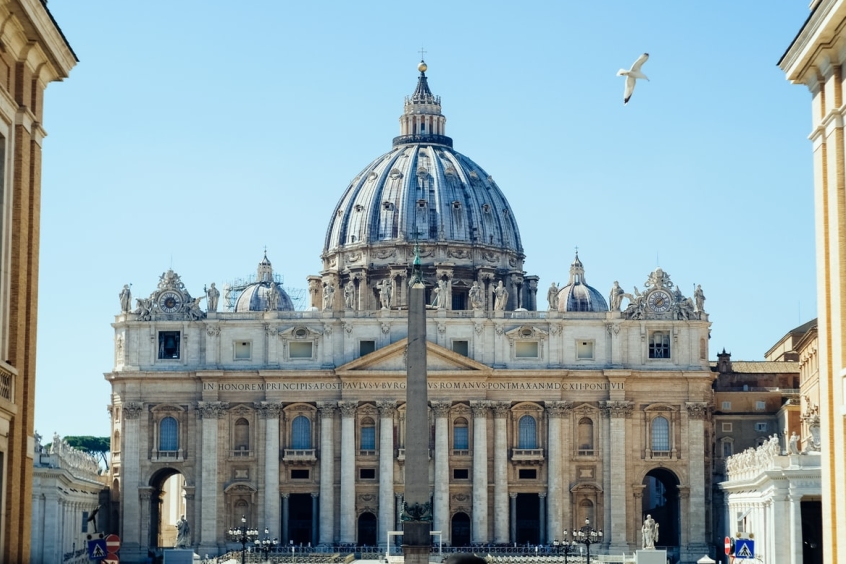
(CP) The Vatican's doctrinal office issued a five-page statement Thursday clarifying last month's controversial "Fiducia Supplicans" guidance, which led to an eruption of pushback from theologically conservative Roman Catholic prelates worldwide.
The office headed by Cardinal Victor Manuel Fernández addressed the reception to the guidance while urging "a full and calm reading of the Declaration so as to better understand its meaning and purpose," according to Vatican News.
"Fiducia Supplicans," which was issued by the Vatican's Dicastery for the Doctrine of the Faith and approved by Pope Francis on Dec. 18, permits priests to "bless couples in irregular situations and same-sex couples without officially validating their status or changing in any way the Church's perennial teaching on marriage."
The Vatican advised, however, that "one should neither provide for nor promote a ritual for the blessings of couples in an irregular situation."
The guidance drew an adverse reaction from Catholic bishops, mainly in Africa and Eastern Europe.
Tomash Peta, who has served as metropolitan archbishop of the Archdiocese of Saint Mary in Astana since 2003, went so far as to publicly admonish the pontiff and prohibit any form of blessing for same-sex couples in churches under his authority.
In Kenya, the Kenya Conference of Catholic Bishops released a statement explaining that the new guidance is "causing anxiety and even confusion among the Christians, and in general the people of God."
The U.S. Conference of Catholic Bishops emphasized that the declaration makes a "distinction between liturgical (sacramental) blessings, and pastoral blessings, which may be given to persons who desire God's loving grace in their lives."
"The Church's teaching on marriage has not changed, and this declaration affirms that, while also making an effort to accompany people through the imparting of pastoral blessings because each of us needs God's healing love and mercy in our lives," the USCCB statement reads.
Nine bishops in France issued similar guidance in a Jan. 1 statement instructing priests that they are permitted to bless homosexual individuals but not same-sex couples.
Pushback from bishops' conferences globally "cannot be interpreted as doctrinal opposition because the document is clear and definitive about marriage and sexuality," Fernández said in his clarification.
"There is no room to distance ourselves doctrinally from this declaration or to consider it heretical, contrary to the Tradition of the Church, or blasphemous," the cardinal wrote.
Fernández offered a "concrete example" of what a "non-ritualized form of blessing" would look like, noting that it should only be about 10 or 15 seconds and "does not intend to justify anything that is not morally acceptable."
He stressed that the informal blessing is neither a marriage nor an "approval" of anything in particular, but simply a "response of a pastor towards two persons who ask for God's help."
Such nonliturgical blessings may require more time for application "depending on local contexts and the discernment of each diocesan bishop with his diocese," Fernández said.
"In some places, no difficulties arise for their immediate application, while in others it will be necessary not to introduce them, while taking the time necessary for reading and interpretation," he wrote.
Fernández, who also serves as a theological adviser to Pope Francis, recently maintained to the German Catholic newspaper Die Tagespost that the guidance was intended as a "clear answer" to liberal bishops in Germany who desire to implement formal liturgical blessings for same-sex couples, according to Catholic News Agency.
"It is not the answer that people in two or three countries would like to have," Fernández told the German outlet of the guidance. "Rather, it is a pastoral response that everyone could accept, albeit with difficulty."
© The Christian Post













